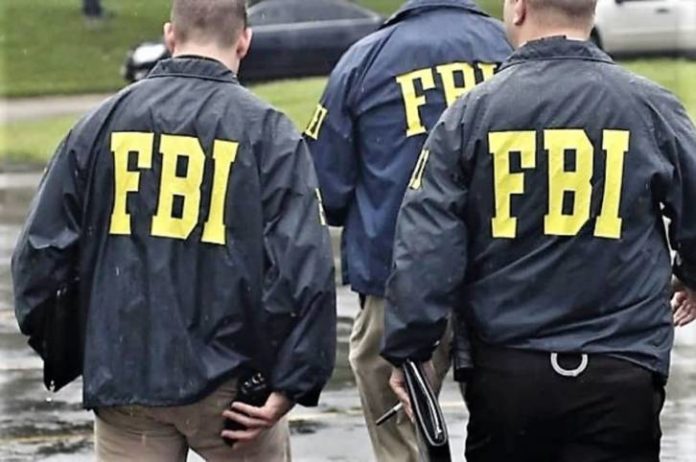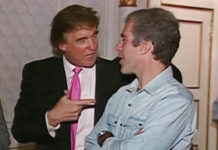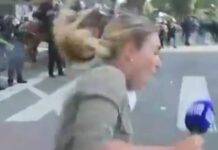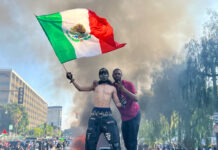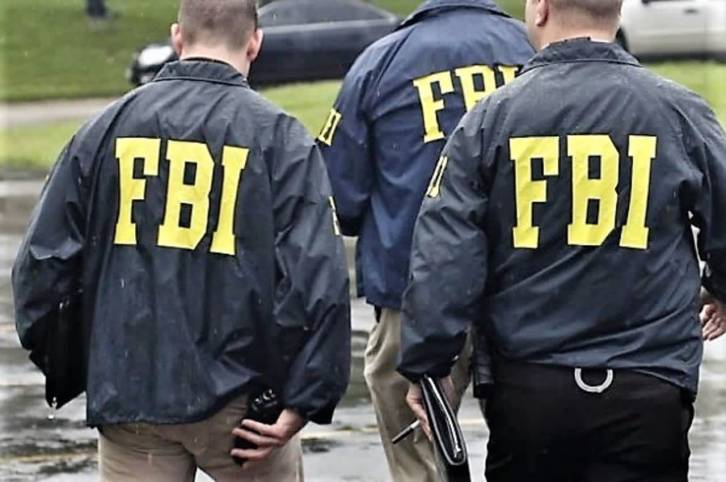 Originally published at National Justice.
Originally published at National Justice.
The family of 27-year-old Fi Duong thought they escaped government oppression when they left Vietnam. They were wrong.
According to an FBI criminal complaint, Duong has been closely surveilled by the FBI for the past six months, including while he engaged in religious activity.
In conversations with undercover FBI agents, Duong held that he entered the Capitol on January 6th to film the events in a journalistic capacity. The man was a member of a Virginia-based Bible study group that Jewish Joint Terrorism Task Force special agent Jason Jankovitz decided to open up a domestic terror probe into.
Agents repeatedly tried and failed to snare Duong into a Molotov cocktail plot because he owned multiple empty glass bottles. They were not able to charge him for any explosives related crimes, but the New York Times and various other outlets are reporting him as a terrorist anyway.
Feds At Bible Study
According to Jankovitz, Duong popped up on the FBI’s radar after an undercover Metropolitan police officer made contact with him outside the Capitol on January 6th.
A week later, the MPD officer introduced Duong to an undercover FBI agent, who he invited to a Bible study group he attended in Alexandria, Virginia. The suspect expressed anguish over the fact that his family fled persecution in Vietnam in hopes of obtaining freedom in the United States, only to now be subjected to similar oppression in America for his patriotic beliefs.
At the house, the FBI agents participated in discussions about the Bible and the group of friends also shot firearms together. The criminal complaint also describes plans to improve their driving skills and train together in martial arts.
Outside of telling group members that he had entered the Capitol to film as a journalist, description of an instance where he had infiltrated an Antifa event, and discussions of Virginia peacefully seceding from the United States, there was nothing in the group that justified federal agents spying on them.
Failed Attempts At Entrapment
Multiple agents began isolating members and trying to talk them into behavior that could be construed as a domestic terror plot.
Judging from the affidavit, Duong was meticulously law abiding. He discussed plans to obtain a suppressor for his rifle but only after filing the proper paper work with the ATF, for example. The complaint against Duong focuses heavily on his political criticisms of Antifa, Black Lives Matter and the Democratic Party, but does not describe any activity that could be prosecuted as criminal.
After noticing a box of empty glass bottles in the suspect’s home, agents began pressuring him to make Molotov Cocktails.
While creating the contraption — a glass bottle filled with gasoline and ignited with a rag to make a small fire — for entertainment value does not strike most people as a serious crime, federal prosecutors on a political mission have in the past charged making Molotov cocktails as the same thing as building an actual bomb.
Last June, two FBI agents pressured Duong into trying to build Molotov cocktails to test them out in West Virginia. The suspect then changed his mind last minute. He told the two undercover agents that he wanted to obtain permission from the ATF to construct the explosive device before actually doing it.
The agents soon peer pressured him into another attempt, this time at an abandoned prison in Fairfax County, which the FBI could use to dump serious charges on the man.
He was picked up in an undercover FBI vehicle and the men engaged in “reconnaissance.” At the site, Duong was recorded telling the agents that he liked the idea, but would seek to get formal permission from the state before testing the devices near the facility.
Ultimately, the undercover agents got frustrated and decided to charge him for trespassing at the Capitol. In spite of this, the FBI complaint features the phrase “Molotov cocktail” over 24 times, which is an attempt to paint the suspect as a dangerous criminal when he appears before a judge.
It should be noted that an FBI criminal complaint is merely a narrative constructed by the agent authoring it, and should thus be taken with a grain of salt.
Even as the only information available to the public at the moment, there are already serious civil rights and freedom of religion questions, including in respects to bias and hate when it comes to a federal agent of Jewish ancestry deciding to target men of the Christian faith for surveillance while they engage in fellowship and worship.

